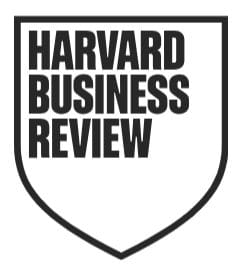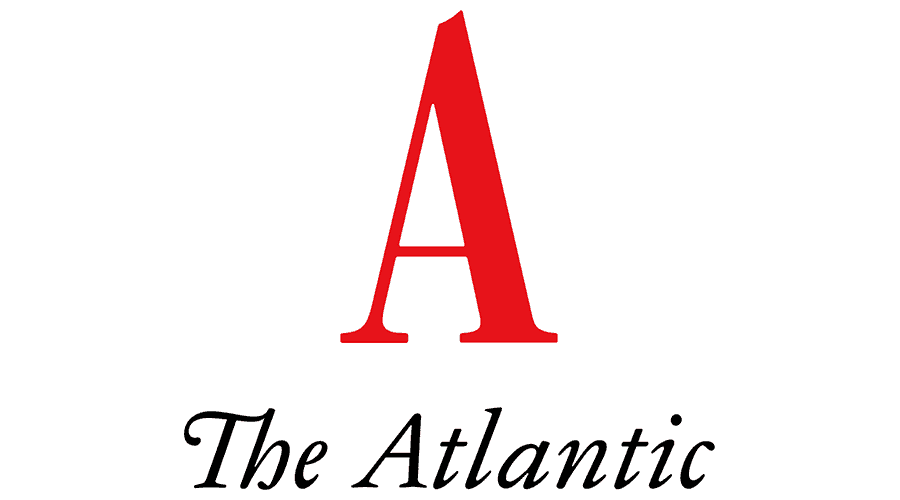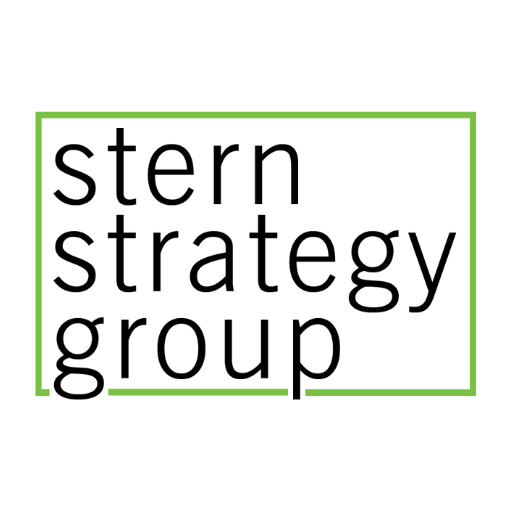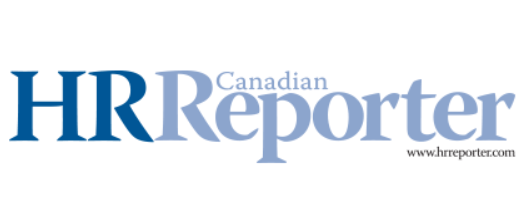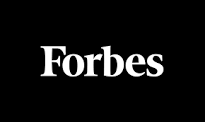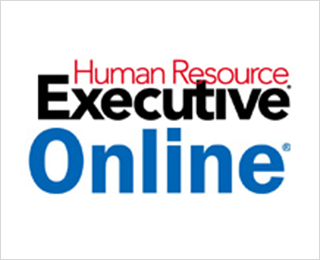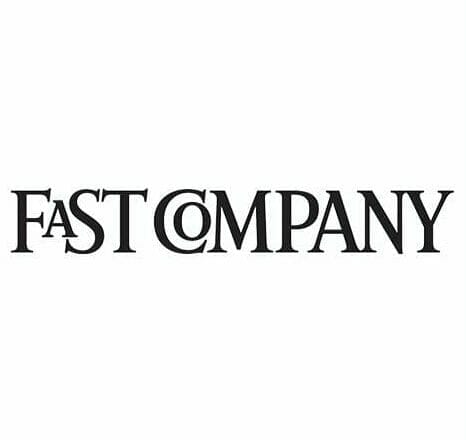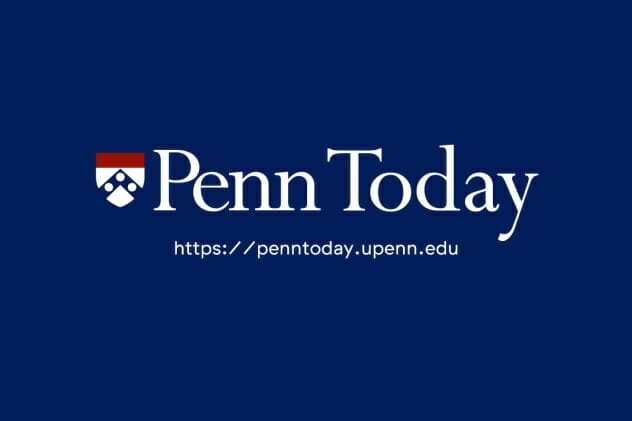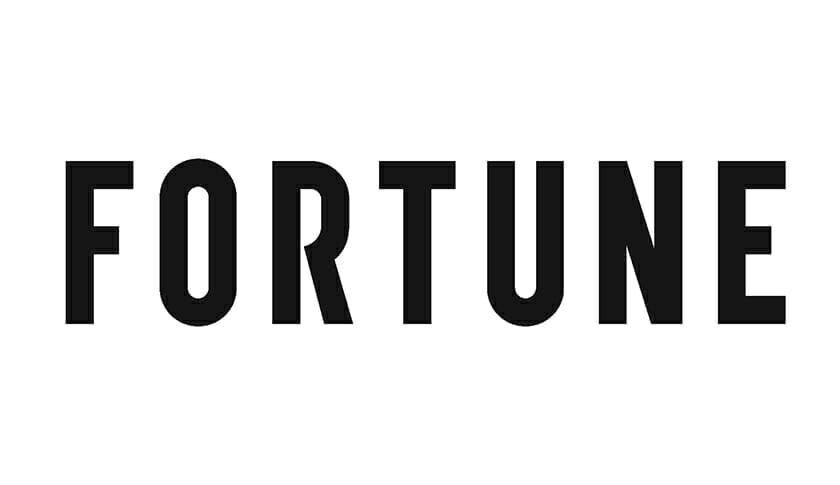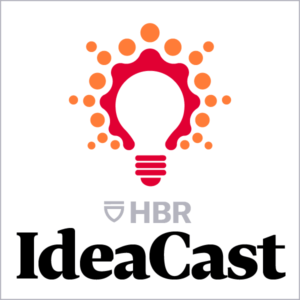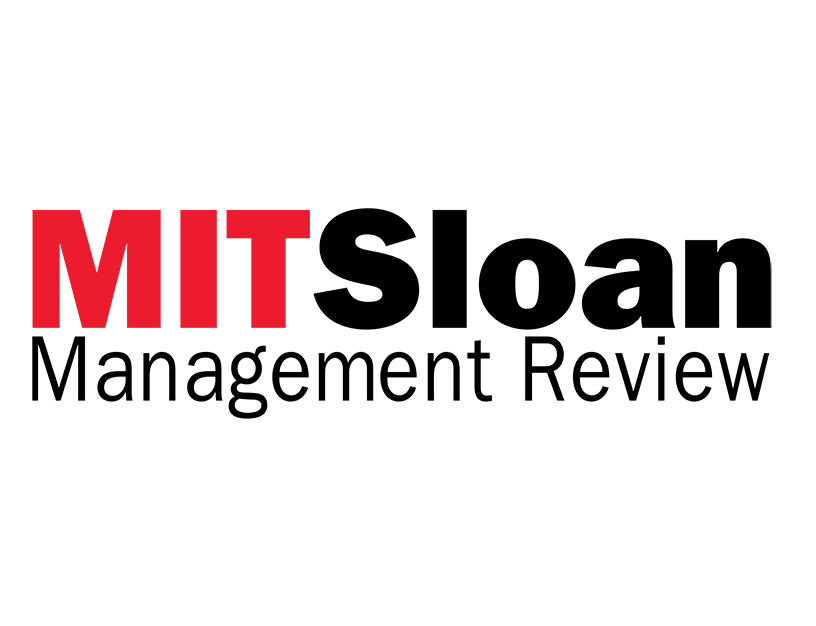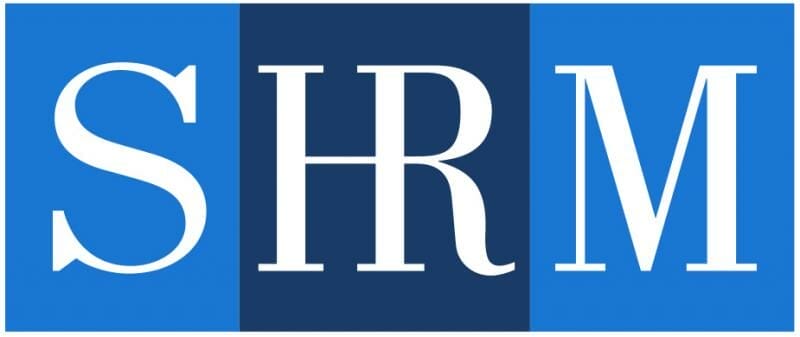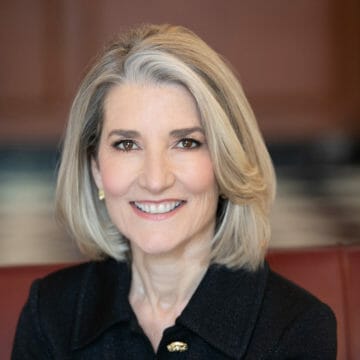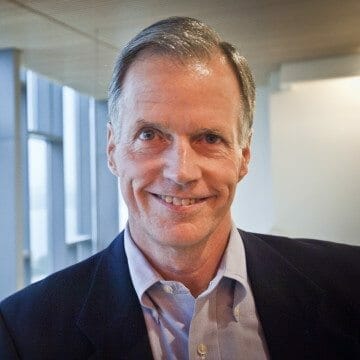Videos
Learn More About Peter Cappelli
In a quickly changing world where everything – from how to where we conduct business – is up for debate, organizations face a pivotal question: how do leaders navigate the turbulence of change while retaining and nurturing their most valuable assets, their people?
Though remote work, hybrid models and economic fluctuations have triggered a wave of transformation in the global workforce, Peter Cappelli, the George W. Taylor Professor of Management at The Wharton School, posits that we can safely ignore some of the contemporary concerns, but many management problems like getting better at talent management remain constant.
“How can we explain why we don’t manage people better? So many decisions happen that are penny-wise and pound-foolish, and are just hard to explain,” observes Cappelli, a veteran executive educator who directs Wharton’s Center for Human Resources.
“Companies continue to do things that just don’t make sense, like lay people off, and then a few months later they have to hire them back. Or they don’t train anybody, and instead they go outside and hire people and pay them twice what they’re paying their current employees. By fixating on the cost of hiring, but not bothering to look at whether the people they’re hiring are any good or not, management finds themselves caught in a loop where they just keep doing things which don’t make a lot of sense.”
Cappelli’s unflinching view of a corporate landscape that is popular but cannot succeed in the long run marks him as a trusted advisor for organizations eager to adopt a change in mindset that will help them thrive in transformative times. His practical recommendations stem from decades of observing and dissecting management behaviors. Through engaging presentations and interactive workshops, he pinpoints where leaders falter and offers innovative solutions to enhance their effectiveness. His guidance shows leaders a framework for escaping many of the puzzling practices in contemporary management, replacing them with reliable, tested approaches that align employee mental health with smart business decisions, leading to increased profits.
Balancing Financial Accounting With People Power
Named by HR Magazine as one of the top five most influential thinkers in management, Cappelli’s work resonates with HR professionals and C-suite executives alike, offering them the tools and wisdom necessary to weather the storm of uncertainty. Likewise named one of the 50 influencers in the field of aging, he is adept at dispelling the noise around human capital and distinguishing between valuable trends and temporary distractions – such as generational differences and changing demographics – and urges leaders to prioritize the core issues: Why are employees leaving? How can management practices be improved to enhance overall work efficiency? This perspective helps leaders see how changing tactics could result in unimaginably positive results.
Cappelli’s groundbreaking book, “The Future of the Office” (Wharton School Press, 2021) – which was lauded as the Globe and Mail’s Best Business Book of 2021 – is the basis for new work addressing whether to bring remote workers back in, whether to compromise with hybrid work, and what issues we have to solve to move forward, such as the loss of information sharing that office relationships used to provide. Cappelli’s latest work, “Our Least Important Asset: Why the Relentless Focus on Finance and Accounting is Bad for Business and Employees,” (Oxford University Press, July 2023) delves into the importance of understanding mistakes we keep making in modern management and how to fix them.
“With the way financial accounting is assessed now, you measure outcomes on a per employee basis, instead of per labor cost. This means if you get rid of your employees and your headcount drops incredibly, you look more valuable,” Cappelli remarks in Harvard Business Review. “Leaders are finally starting to realize the quirkiness of financial accounting and that the many dumb things that make it work don’t actually make for a sustainable, successful business long-term.”
How AI Will Change the Workplace: The Danger of Following Blindly
For companies keen on harnessing the power of AI while maintaining the crucial human element within their organizations, Cappelli advises that there are a lot of judgment calls to make.
“Data science tools and machine learning algorithms can work better than anything we are doing now in tasks like hiring, but for them to work, it requires that we take the hiring managers out of the picture,” he explains. “If we aren’t willing to do that, there is no point investing in those tools.”
“Generative AI tools like ChatGPT raise new questions that we haven’t considered,” Cappelli continues. “They can produce good answers, but a huge challenge is that they do not produce the same answer even if you ask them the same question again. Organizations have to figure out how to assess all the possible answers they might generate – and how to deal with the possibility that leaders will drown in competing reports generated by these different tools.”
“How do we explain to a subordinate why the appraisal written by ChatGPT gave them a lower score compared with last year, even though their performance seemed to be the same?” he asks in The Wall Street Journal. Leaders must figure out carefully how to handle the problems that come with AI tools before jumping in to use them.
With insights on how leaders can use data science to create the best workplace policies and avoid the downsides that can come with moving decisions from people to machines, Cappelli’s lessons illustrate how technology actually impacts people’s jobs. As the allure of AI seeps into the white-collar world, promising increased efficiency and accuracy, organizations that blindly embrace the technology may be running some serious risks.
As the future of work morphs, Cappelli’s expertise is essential for leaders striving to balance agility with empathy, efficiency with fairness, and technology with the human touch. A guiding light illuminating the path forward for organizations to thrive, evolve and seize the opportunities of tomorrow, Cappelli helps institutions not just prepare for the future, but lead it.
Peter Cappelli, the George W. Taylor Professor of Management at The Wharton School and director of Wharton’s Center for Human Resources, is a leading expert on developing strategies to address 21st-century changes in work. Author of “The Future of the Office: Work from Home, Remote Work, and the Hard Choices We All Face” (2021) and “Our Least Important Asset: Why the Relentless Focus on Finance and Accounting is Bad for Business and Employees” (2023), Cappelli has also studied and written extensively on managing a multigenerational workforce with differing values. Named one of the 50 influencers in the field of aging, he co-authored the book “Managing the Older Worker: How to Prepare for the New Organizational Order” (2010), which provides key steps to recruiting and retaining workers who are older by becoming more purpose-driven.
In addition to his position at Wharton, Cappelli is also a research associate at the National Bureau of Economic Research in Cambridge, Mass. Elected a fellow of the National Academy of Human Resources, he received the 2009 PRO award from the International Association of Corporate and Professional Recruiters for his contributions to HR. He serves on a number of advisory boards, including the Global Agenda Council on Employment for the World Economic Forum, and has held a number of labor and workforce-related positions within the U.S. government. Cappelli has degrees in industrial relations from Cornell University and in labor economics from Oxford, where he was a Fulbright Scholar.
Peter Cappelli is available to advise your organization via virtual and in-person consulting meetings, interactive workshops and customized keynotes through the exclusive representation of Stern Speakers & Advisors, a division of Stern Strategy Group®.
Redefining Management: Cultivating Sustainable Success Beyond Numbers
In an era where perplexing management decisions – like mass layoffs followed by large-scale rehiring, or paying exorbitant costs to hire externally instead of retraining – are the norm, organizations are left questioning the rationale behind these penny-wise, pound-foolish choices. Helping organizations improve their judgement is Peter Cappelli, the George W. Taylor Professor of Management at The Wharton School and renowned expert on human resources strategy. Cappelli’s latest book, “Our Least Important Asset: Why the Relentless Focus on Finance and Accounting is Bad for Business and Employees,” reveals how the fixation on financial accounting exacerbates these issues with detrimental effects to both employees and the long-term triumph of the business. Through thought-provoking discourse, Cappelli imparts groundbreaking strategies to turn ineffective practices on their heads, prioritizing employee wellbeing over pure headcount, and elevating profits sustainably. Leaders and teams come away with insights and tools rooted in extensive research that enable them to reconstruct their business practices and mindsets. Drawing from his book, Cappelli energetically encourages organizations to redefine management, where sustainable success is achieved by prioritizing people, the business’s most invaluable assets, rather than focusing solely on the balance sheet.
Unmasking AI: Rethinking the Automation of White-Collar Roles
As the allure of AI seeps into the white-collar world – promising increased efficiency and accuracy – organizations that blindly embrace the technology may be running some serious risks. According to award-winning author and Wharton Professor Peter Cappelli, there are potentially dangerous implications of allowing AI to take over some crucial aspects of work, especially where human nuance is involved. Drawing from his rich experience in analyzing workplace dynamics, Cappelli explores how AI applications like ChatGPT might lead to errors of judgement due to their lack of natural intuition and inability to incorporate proprietary information. Leaders and teams will walk away with a better understanding of the limits of AI, particularly in making evaluative decisions for their own organizations. Passionate about the influence of personal characteristics when using AI, Cappelli argues for a balanced approach to implementation, ensuring human involvement and decision-making remain at the core of workplace operations, business decisions continue to be valid and human dignity is protected in the workplace.
Dissecting Demographics: Debunking the Myths of Generational Differences in the Workplace
Misconceptions about generational differences hindering effective workforce management have proven persistent, causing internal biases and impacting work relationships. Arguing against the idea of generational categories like “millennials” or “Gen X” as meaningful distinctions for workforce management is Wharton Professor Peter Cappelli. Drawing on research from the National Academies of Science, Engineering and Medicine, Cappelli’s refreshing perspective exposes the fallacy of these distinctions, suggesting that these perceived differences are more related to age than generation. Cappelli debunks the idea that younger employees, often dubbed job-hoppers, are fundamentally different, arguing instead that their behavior aligns with that of preceding generations at the same age. Equipped with this clearer understanding, leaders and teams will be better prepared to dismiss distracting “noise” and focus on real issues that influence workplace dynamics. This talk encourages the audience to cast off unhelpful stereotypes, and instead foster an environment that celebrates individual attributes over generational clichés.
The Future of the Office: Work from Home, Remote Work, and the Hard Choices We All Face
With almost no warning, the pandemic pushed office workers into work-from-home mode. The sense was it would only be temporary, but as the months of lockdown continued, companies found out the unexpected: employees were just as productive, if not more. Now leaders must decide on how best to move forward. In this talk, based on his latest book, “The Future of the Office: Work From Home, Remote Work, and the Hard Choices We All Face” (September 2021), Wharton Professor Peter Cappelli, a global authority on talent management and the future of work, discusses the compromises both companies and employees will have to make to arrive at a workplace model that serves all stakeholders. He explains why work-from-home after the pandemic won’t look anything like it did during the pandemic and reveals lessons learned from telecommuting practices a generation ago, and why it didn’t go well for those who chose to work remotely permanently. He also shares the results of surveys he conducted with top organizations about the issue, and outlines success stories from his years of experience helping HR leaders find solutions. Participants come away from this talk well-equipped to design an optimal workplace model that makes the best use of people, office space and resources.
The Truth About Jobs, Employment and Generations at Work
AI is automating jobs out of existence. Soon everyone will be working in the “gig” economy rather than for big companies. Millennials and Generation Z are difficult to retain as employees and are more disloyal than previous generations. These are some of the “facts” about the future of work that are widely believed by HR professionals and managers. But according to Professor Peter Cappelli, an esteemed economist whose career as an academic researcher has been based on studying trends in employment, these are all popular myths not validated by evidence. AI has automated routine tasks, but human workers are still needed; there hasn’t been a massive shift from full-time employment to gig or contract work; younger workers are not significantly less loyal to employers than previous generations were at the same age. In this presentation, which can be tailored to address particular myths, Cappelli provides an overview of what trends are and aren’t reshaping the future of work. He also offers recommendations to managers on how they can successfully optimize workers’ productivity, loyalty and satisfaction.
Technology and Trust in the Workplace: How to Re-Humanize Management
Leaders increasingly have access to technology that can insert itself into virtually every task of management. The array of options is staggering – we now have software that gives career advice, predicts the flight risk of employees, and that draws insights from how employees stand and move. The opportunity to use this to make better decisions is great. But so is the risk of disengagement by transferring decisions and control from people to machines and, in particular, by undercutting supervisors when algorithms take away their power. Monitoring is necessary to gather the data needed for these models, but that can quickly invade privacy. The use of AI and data-gathering has historically led to a decline in trust between employees and managers. Whatever benefits may be derived from AI, employee dissatisfaction is a negative that harms productivity, cooperation and retention rates. In this presentation, Professor Peter Cappelli elaborates on his research findings while also recommending ways managers can improve their use of technology without undermining trust. Ultimately, says Cappelli, managers cannot allow technology to alienate themselves from their direct reports. The human touch and personal relationships remain key, especially in the age of AI.
The Real Generational Dilemma: Recruiting and Retaining Older Workers
While managers and HR professionals focus on the supposed challenges of recruiting and retaining millennial and Generation Z workers, they’re ignoring an arguably more important demographic: older workers. As the workforce ages and lives longer than past generations, employees in their 60s and older will become more important and necessary. But companies generally don’t tailor their appeal or policies to these workers. Drawing on the research conducted for his book, “Managing the Older Worker,” Professor Peter Cappelli presents the economic and business case for focusing on longevity and re-orienting HR strategies toward more senior employees. Cappelli’s proposals include emphasizing the purpose-driven nature of organizations and doing more to foster social connections at work. An economist who studies broad trends in employment, Cappelli knows that the future growth area for finding workers will be among the 65 and older demographic; it’s up to companies to fully harness the opportunities.
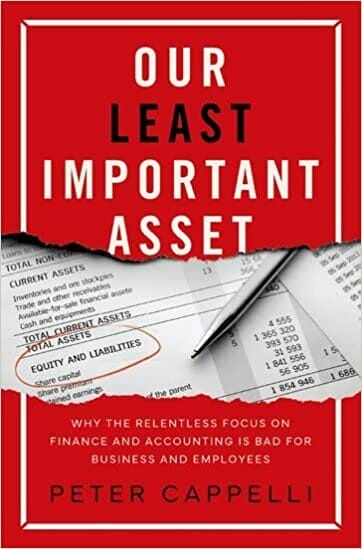
Our Least Important Asset: Why the Relentless Focus on Finance and Accounting is Bad for Business and Employees
(Oxford University Press, July 2023)

The Future of the Office: Work from Home, Remote Work, and the Hard Choices We All Face
(Wharton School Press, September 2021)
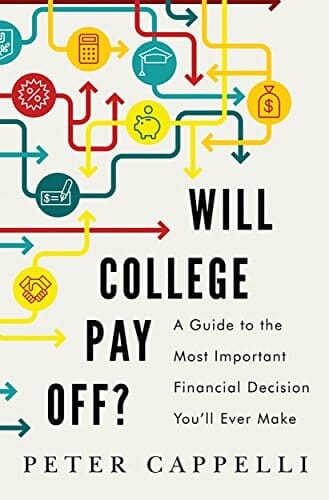
Will College Pay Off?: A Guide to the Most Important Financial Decision You’ll Ever Make
(PublicAffairs, June 2015)

Why Good People Can't Get Jobs: The Skills Gap and What Companies Can Do About It
(Wharton School Press, June 2012)
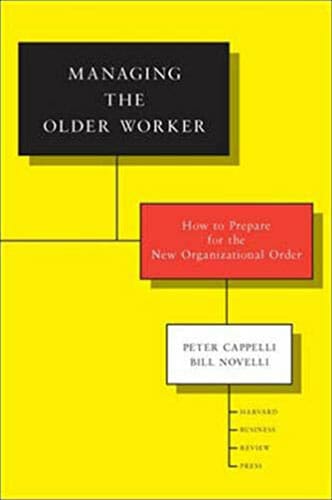
Managing the Older Worker: How to Prepare for the New Organizational Order
(Harvard Business Review Press, August 2010)
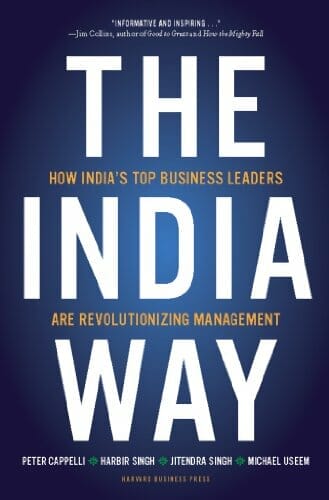
The India Way: How India's Top Business Leaders Are Revolutionizing Management
(Harvard Business Review Press, March 2010)
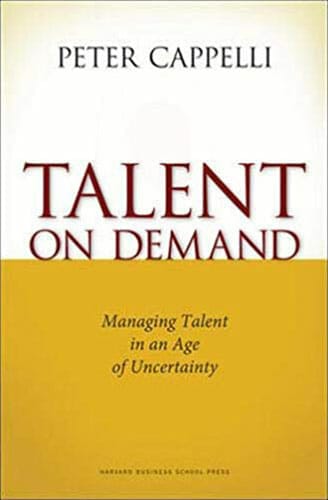
Talent on Demand: Managing Talent in an Age of Uncertainty
(Harvard Business Review Press, March 2008)

The New Deal at Work: Managing the Market-Driven Workforce
(Harvard Business Review Press, February 1999)
Future-Proof Your Talent Management
As the business landscape undergoes rapid change, effectively managing and retaining top talent becomes pivotal. In this engaging and highly experiential workshop, Peter Cappelli, the George W. Taylor Professor of Management at The Wharton School and director of Wharton’s Center for Human Resources, provides actionable insights on:
- Navigating changes in work environments, such as remote and hybrid models, economic fluctuations, and AI implications, while retaining and nurturing talent
- Escaping the cycle of ineffective management practices by adopting tested approaches prioritizing employee well-being and business profitability.
- Understanding the real cost of financial fixation in hiring and developing talent, emphasizing on talent “building” over “buying” and outsourcing.
- Utilizing data science and evidence for devising efficient workplace policies, ensuring a balance between AI automation and the irreplaceable human element.
- Preparing for future work dynamics while maintaining the essence of empathy, fairness and human touch.
Offered in half-day, full-day or two-day formats, this workshop, filled with role-playing exercises and detailed case studies, is ideal for leaders aiming to create a resilient, future-ready organization.
Experiential Talent Management Workshop with Peter Cappelli
When taking on the responsibility of overseeing an organization’s talent, it’s vital to focus on a number of important areas such as the financial aspects of talent management, delegation of duties, career development and more. In this highly interactive session that can be presented in a half-day, full-day or two-day format, Peter Cappelli, director of the Wharton School’s Center for Human Resources, leads participants through action exercises such as role playing, detailed case studies and more to take on the following topics:
- The financial challenge and financial case for taking talent management seriously, like identifying needs in advance and thinking through how to make “build-buy-borrow” decisions carefully
- What individual leaders of all kinds can and should do to develop their employees, such as delegation, creating assignments that stretch workers, coaching and performance management
- Achieve more “building” of talent and less “buying” and outsourcing of talent by focusing on designing a robust internal marketplace that improves talent development and career prospects. Special attention is given to understanding how employees can and should move through positions that develop their abilities and fill key roles from within the organization
Praise for "Our Least Important Asset"
"...a timely study that connects present-day labor shortages to the dehumanizing irrationality of the modern workplace."
"How and why are corporate jobs getting worse and worse over time? Peter Cappelli's latest book answers both these questions: corporations are pushed by accounting demands to squeeze employment costs and to rely on contractors and outsourcing to keep these costs off their books-even at the expense of HR practices supported by decades of research and experience. 'Our Least Important Asset' is an arresting take on the source of our current employment malaise."
"Human capital expert Peter Cappelli has written an important new book addressing the fundamental question of why policies that value and build human capital are not only rare in practice but increasingly implemented. His insightful answer: financial accounting measures lead to a lose-lose situation in which companies and their employees suffer. Just as the ESG movement has broadened reporting, so the answer to improved productivity and employee wellbeing must begin in changes in accounting measures."
"Peter Cappelli, one of the leading scholars of workforce management, offers a compelling explanation of the decline of human resource practices like careful hiring and performance evaluation and investment in training. Corporate fixation with shareholder value maximization operationalized through financial accounting practices has turned employees from a perceived asset to a liability. Cappelli's probing analysis shows that the popular bromide of convincing corporate leaders 'to do well by doing good' is not sufficient to stem the erosion of work. That makes 'Our Least Important Asset' a must read for those who care about the future of work and workers."
"A thought-provoking and important study for managers or faculty and students in business and management programs."
Praise for "The Future of the Office"
“We need to rethink the work world and the ‘contract’ between workers and employers… Cappelli’s new book lays out the framework for exploring what this brave (and perhaps better) new world might be; it should be required reading.”



















